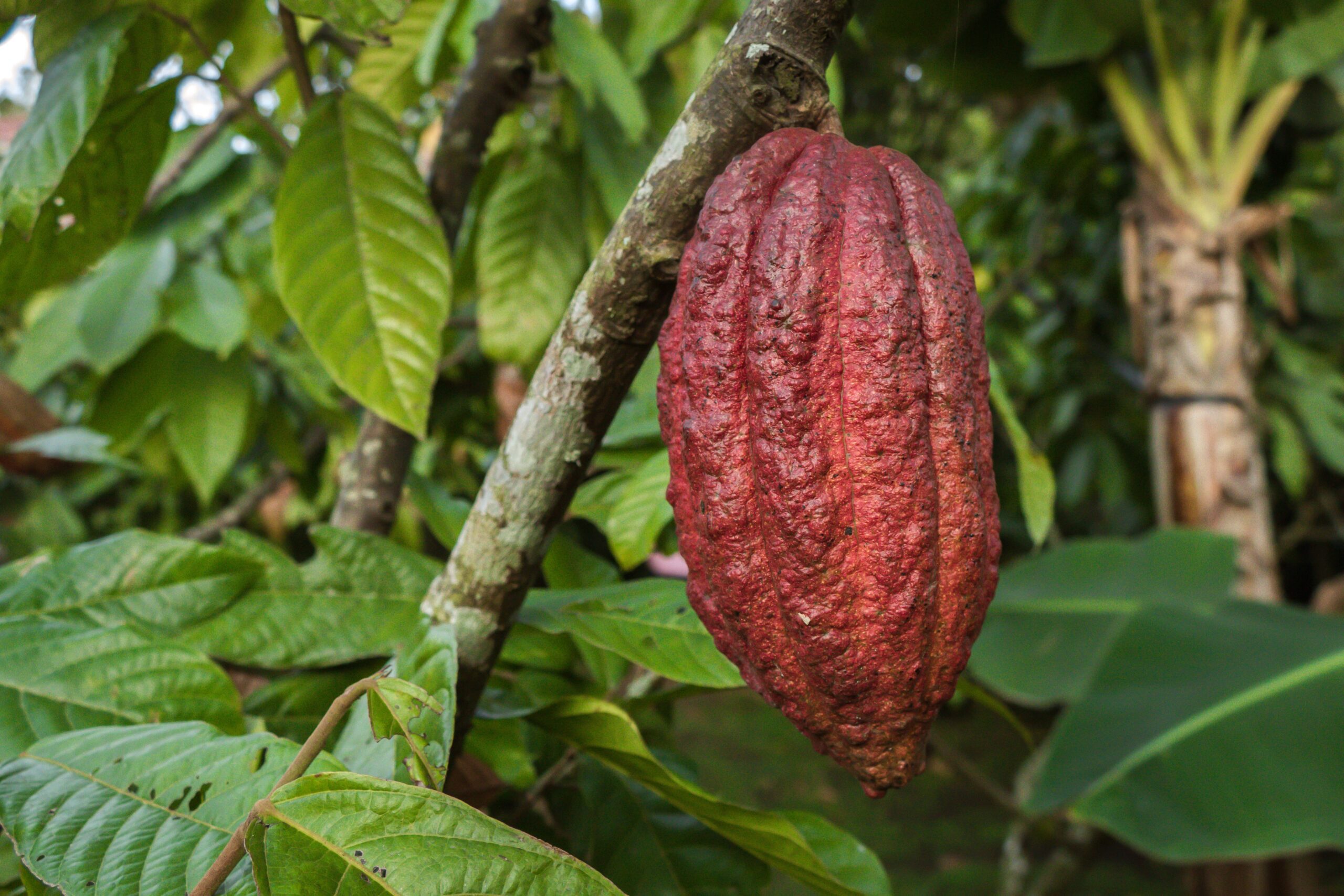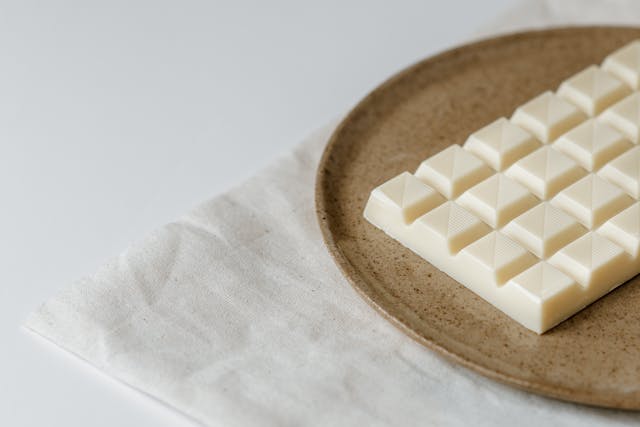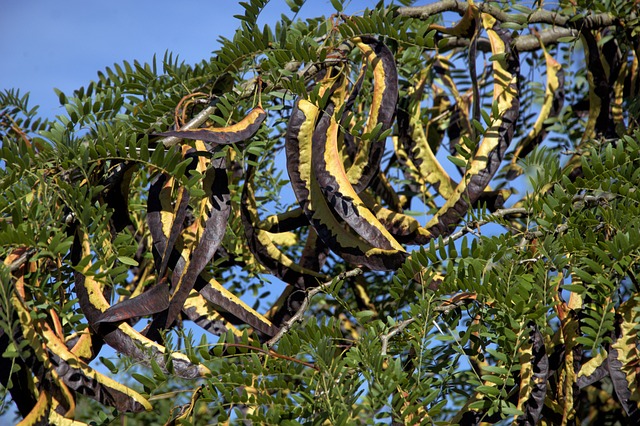
Tree to Bar Chocolate: How Our Ethical Model Benefits Farm Workers, Consumers & Community
May 31, 2024
White Chocolate: A Comprehensive Guide
July 11, 2024Pets and Chocolate
Vets Say White Chocolate Unlikely to Poison
Key takeaway: White chocolate is unlikely to poison your pet, but you still have to think twice before letting your furry friend eat white chocolate. Pet’s weight will determine safe amounts of chocolate they can ingest.
“Chocolate is toxic to dogs, cats, rabbits, hamsters, horses, all animals.”
As a pet parent, you’ve likely heard that statement. Your four-legged friend loves chocolate, but you know that if you let them taste even a jiffy, your pet would get sick or even die.
It’s true, pets can get sick and some dogs have died after eating chocolate. But it’s also true that all chocolate is not the same. Not all types of chocolate contain the substances in cacao that are toxic to animals.
This article shows you why white chocolate is not as toxic as other types of chocolate and what you can do if your pet eats chocolate behind your back.
But before we get there, let’s see why chocolate generally is not a treat for your pet.
Why Chocolate is Unsafe for Pets
Chocolate is toxic to animals for 3 main reasons: caffeine and theobromine in cocoa solids, high amounts of cocoa fat, and added sugar.
Here’s a breakdown of how these substances may harm your animal.
Caffeine and theobromine stimulate the central nervous system, and because animals cannot metabolise these substances like humans can, this easily leads to poisoning within hours of your pet eating chocolate. Symptoms can range from restlessness to seizures. Meanwhile, high amounts of fat and sugar cause problems in your pet’s digestive system like vomiting and diarrhoea.
Most chocolates have cocoa fat and added sugar. Some have more, others less. But you can find theobromine and caffeine only in dark chocolate or brown chocolate. This is because these compounds are found in the brown part of the cocoa bean called cocoa solids. This is what makes dark and brown chocolate more toxic to animals. White chocolate has cocoa fat but lacks cocoa solids. A white chocolate product that is low in sugar and fat may not cause issues with your pet unless they eat large quantities.
Symptoms of chocolate toxicity are similar in most animals.
· Chocolate Toxicity in Dogs
In dogs, caffeine and theobromine toxicity affects the guts, heart, central nervous system, and kidneys. According to Vets Now, this can appear as vomiting, diarrhoea, restlessness and hyperactivity, rapid breathing, muscle tension, incoordination, increased heart rate and seizures.
Call a vet if your dog has eaten chocolate. Don’t wait for symptoms first as it can take up to 6 to 12 hours for symptoms to appear.
· Chocolate Toxicity in Cats
PetMD classifies theobromine toxicity in cats according to severity, which also depends on the type and amount of chocolate.
Mild toxicity causes mostly digestive system problems like vomiting and diarrhoea, with some possible hyperactivity. Moderate toxicity overstimulates the cardiovascular system. Here, your cat may experience an increased heart rate and an abnormal heart rhythm. Lastly, severe toxicity overstimulates the central nervous system with symptoms like hyperactivity, difficulty walking, tremors, and seizures.
Symptoms of theobromine toxicity in a cat may appear a few to 12 hours after eating chocolate and last for as long as 96 hours, depending on the severity of toxicity. Call your vet as soon as you discover that your cat has ingested chocolate.
· Chocolate Toxicity in Horses
Even with their larger bodies, horses are more sensitive to theobromine toxicity than dogs. The Equine Institute advises owners and caretakers to keep all chocolate away from horses as theobromine, caffeine, and high amounts of sugar are all toxic to horses, though in varying degrees. Theobromine is the most toxic.
Your horse will be fine for a few hours after eating chocolate as symptoms of toxicity may appear after 6-12 hours. Call vet services and watch your horse for excessive drinking of water, loose poop, restlessness, sweating, rapid breathing, and increased heart rate. In severe cases, ingesting chocolate can lead to colic, seizures, and even death in horses.
· Chocolate Toxicity in Rabbits and Hamsters
The small size of hamsters makes them more sensitive than other pets to toxic effects of even smaller amounts of theobromine and caffeine. Symptoms of chocolate toxicity in rabbits and hamsters appear after 6 to 12 hours just like in other animals, and may include diarrhoea, loss of appetite, lethargy, increased heat rate, restlessness, seizures, etc.
Vet Says White Chocolate is Unlikely to Poison Dogs
The standard ingredients for white chocolate are cocoa fat (cocoa butter), animal milk, and sugar. Vegan versions replace animal milk with plant-based alternatives. The cocoa in white chocolate is cocoa fat only, which lacks caffeine and theobromine found in the brown cocoa solids.
Dave Leicester, Head of Telehealth at Vets Now, revealed that white chocolate is unlikely to poison dogs because it lacks caffeine and theobromine. In other words, only chocolate products with cocoa solids should concern pet parents with fears of toxicity. Such chocolate products include dark or brown bars, but also ice cream rich chocolate, chocolate pudding, peanut butter cups, cookies, brownies, and recipes that include cocoa solids.
LEARN MORE: White Chocolate – A Comprehensive Guide
Should you Then Treat Your Furry Friends to White Chocolate?
Not really. Dave Leicester also warns about the harmful amounts of fats and sugar usually found in chocolates, including white chocolate. In high amounts, fats and sugar can upset your pet’s digestive system, leading to vomiting and diarrhoea. A small amount of white chocolate won’t hurt your pet’s digestion, but you still have to be careful. You can’t just thoughtlessly throw white chocolate at your pet.
That white chocolate is unlikely to poison animals means that it’s not a cause for immediate alarm if you find your pet treating themselves to white chocolate.
Tiny amounts may cause no GI symptoms at all. And the lack of theobromine and caffeine in white chocolate obviously means no cardiovascular or central nervous system symptoms. You should be concerned if your pet was eating dark or brown chocolate.
The Most Toxic Chocolates for Dogs and Other Pets
The darker (and more bitter) the chocolate, the more toxic it is to your pet. That is, the higher the cocoa solid in a chocolate product, the more your pet is likely to suffer from the effects of theobromine and caffeine.
In order of theobromine and caffeine toxicity to pets:
· Dark chocolate is the most toxic.
· Milk chocolate is mildly toxic (less theobromine and caffeine).
· White chocolate is unlikely to be toxic (no theobromine or caffeine).
Some chocolate products have more caffeine and theobromine than others, and therefore more toxic. PetMD has compiled a long list of caffeine and theobromine content in some popular chocolate brands and formulations that should guide pet parents to guess how much of these substances their animals have ingested.
Will a Small Piece of Chocolate Harm Your Dog or Cat?
A small piece of chocolate is unlikely to harm a dog or cat or another pet. However, the severity of chocolate toxicity depends on the type of chocolate and the weight of your dog, cat, rabbit, or hamster. The darker the chocolate and the smaller the animal, the more likely the occurrence of toxicity. Small amounts of white chocolate will probably cause no symptoms, but it may not be so for dark or brown chocolate.
You can use a chocolate toxicity meter to find out if you should be concerned about your dog enjoying a small piece of chocolate.
How much White Chocolate Your Pet Can Have
White chocolate is unlikely to poison your pet the way dark or brown chocolate would. However, that doesn’t mean your furry friend can eat as much white chocolate as their stomach or cravings want without consequences. In large amounts, cocoa fat and sugar (and other unhealthy additions in commercial mass chocolate) can cause gastrointestinal problems like watery poop and vomiting.
According to PetMD’s toxicity calculator, a 22-pound (or 10kg) dog may have as much as an ounce (30g) of white chocolate without symptoms of GI toxicity.
Your pet’s weight vs. the amount of fat/sugar in the white chocolate product will determine the safe amounts of white chocolate they can have.
Things to Consider if you Want to Give Your Pet White Chocolate
It’s holiday—Easter!—and you can’t stand your pet’s loyal brown eyes begging you, or their nose sniffing around with the anguish of intense cravings while you chomp down your delicious chocolate. To please or not to please your pet? A little won’t hurt, right?
Offering them a tiny amount will not hurt (beyond encouraging their cravings), but you may want to think twice before you lay down a piece of white chocolate before your dog, cat, bunny, or hamster.
· Is it quality white chocolate? A minimalist bean to bar white chocolate is safer than mass market products that barely meet legal minimums for white chocolate. Besides, mass market white chocolate may have unnatural ingredients.
· What’s the weight of your pet? How much can they safely take for an occasional treat? Use a dog chocolate toxicity calculator to help.
· Are you going to be with your pet for the next couple of hours so you can keep an eye on them? Just in case any unusual symptoms pop up.
Although white chocolate is unlikely to poison your pet, you may want to try pet-friendly ‘chocolate’.
Carob Chocolate, the Pet Friendly Chocolate
Carob is a flowering evergreen tree native to the Mediterranean region and the Middle East. It shares some similarities with cacao. It has an edible fruit in the form of seeds and pulp inside a pod. The brown pulp of carob pod is roasted to make carob powder which is used to make candies that look like chocolate.
Carob ‘chocolate’ is pet friendly. It looks like real chocolate but lacks theobromine and caffeine. It is also low in fat and so does not pose the same gastrointestinal issues your pet may experience with cocoa fat.
When buying carob chocolate for your pet, look for products made specially for pets (some are not) to ensure that the other ingredients are also non-toxic to animals.
Other Foods Your Dog or Cat Should not Eat
Chocolate is not the only thing you should hide from your pets. Also, make sure the following are not accessible to your dog or cat.
· Alcohol
· Grapes and raisins
· Milk and other dairy products
· Caffeine-containing foods like tea and coffee
· Onions, shallots, leeks, garlic, chives
· Persimmons, peaches, and plums
Here’s a longer list of foods dogs and cats should not eat and why.
Some Questions about White Chocolate and Pets
Will a tiny amount of white chocolate hurt a cat?
A tiny amount of white chocolate is unlikely to hurt your cat or dog because white chocolate does not have caffeine and theobromine, compounds that are toxic to pets. However, cocoa fat and added sugar in white chocolate may upset your pet’s digestive system if ingested in high enough amounts.
Is white chocolate worse or better for dogs?
Vets say white chocolate is unlikely to poison dogs. However, that doesn’t mean dogs can have as much white chocolate without side effects. They may only eat white chocolate to a certain amount, depending on a pet’s weight, without being poisoned. Carob ‘chocolate’ is a better option for dogs and other animals as it lacks caffeine and theobromine.
References
https://www.bostonveterinary.com/web-tails/can-dogs-eat-chocolate/
https://www.hepper.com/can-hamsters-eat-chocolate/
https://www.vets-now.com/2018/03/white-chocolate-bad-for-dogs/
https://www.petmd.com/dog/chocolate-toxicity#common-chocolate-sources
https://en.wikipedia.org/wiki/Carob#Carob_powder
Chocolate Extinction: Fact vs. Fiction + What Chocolate Lovers Can Do
Chocolate ExtinctionFact vs. Fiction, What Consumers Can Do Share On Facebook Twitter Email Is the world really running out of chocolate? Not really. Currently the global […]
Corporate Chocolate Gifting Ideas to Appreciate Employees and Delight Clients
Corporate Chocolate GiftingHow to Appreciate Employees & Delight Clients Share On Facebook Twitter Email When it comes to corporate gifting, a one-gift-fits-all approach just doesn't cut […]
Cacao Supper Club at Home: Guide to Tasting Chocolate, Cacao Tea, and Pulp Juice
Cacao Supper Club at HomeGuide to Tasting Chocolate, Cacao Tea, and Pulp Juice Share On Facebook Twitter Email Imagine gathering around the table with a few […]








